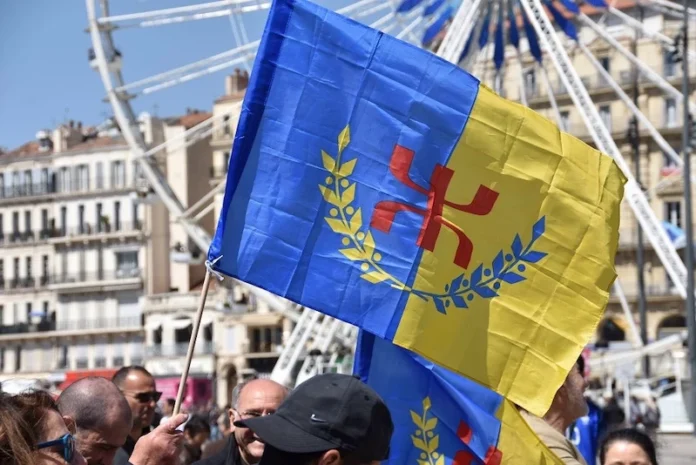Amid the growing political and social turmoil in Algeria, the Kabyle issue stands out as one of the most sensitive and pressing matters. The recent momentum behind the symbolic “independence” drive—led by the Provisional Government of Kabylia in exile and the Movement for the Self-Determination of Kabylia (MAK)—signals a shift from rhetoric to action, while the Algerian government remains entrenched in denial.
What is pushing the MAK to ramp up international actions in Paris, Montreal, and New York? Could these symbolic events pave the way toward real secession? And what is Morocco’s role, especially in light of repeated Algerian accusations of support for the Kabyle cause?
A Calculated Strategy Toward International Recognition?
On April 20, 2024, Ferhat Mehenni, leader of the MAK, declared the symbolic “State of Kabylia” in front of the United Nations headquarters in New York. This was followed by the announcement of open days in Paris and Montreal (June 14–15, 2025), aimed at introducing the Kabyle cause to international NGOs and diplomatic missions.
The message is clear: to move from protest to institution-building and seek legitimacy through soft diplomacy.
But can this approach succeed without a state sponsor or formal recognition from the United Nations? Or is it ultimately symbolic posturing unlikely to affect the geopolitical status quo?
A Popular Movement or Diaspora-Led Elite Project?
Hanifi Ferhouh, Prime Minister of the Kabyle government-in-exile, claims that Kabylia has already severed political ties with Algeria—citing widespread and consistent boycotts of all Algerian elections (presidential, legislative, and local).
For him, this is not mere protest, but a definitive political divorce.
This framing invites comparison with other independence movements, such as Kosovo or South Sudan. Yet the fundamental question remains: does the MAK truly represent the will of the Kabyle people, or is it the project of an activist diaspora elite?
The Algerian State: Denial, Repression, and No Alternatives
By labeling the MAK a “terrorist organization,” Algerian authorities effectively sidestep the debate. This reflects a double crisis: a security crisis stemming from its inability to manage dissent, and a political crisis within a regime beset by internal power struggles and institutional fatigue.
Aksel Belaabbaci, political advisor to Mehenni, underscores this tension. Recently acquitted by a French court, he reasserted the movement’s commitment to declaring full independence by the end of 2025, denouncing ongoing state repression.
Morocco’s Role: Accusation, Mirror, Leverage
Tensions between Algeria and Morocco escalated in 2021 after Morocco’s UN ambassador openly supported the Kabyle right to self-determination. Algeria cited this statement as one of the official reasons for cutting diplomatic ties with Rabat.
Yet, the Kabyle issue now serves as a mirror to Algeria’s own stance on Western Sahara—except the Kabyle case involves a real domestic population with a long-standing history of dissent.
This raises several key questions:
-
Is Morocco leveraging the Kabyle issue to reinforce its own case on Western Sahara?
-
And is the international community selectively applying the principle of self-determination?
An Evolving Global Context
Human rights organizations such as Amnesty International and Human Rights Watch have consistently criticized Algeria for suppressing dissent, including targeting Kabyle activists. These reports lend international legitimacy to the MAK’s claims.
Yet, without strong diplomatic allies or a coalition of supporting states, formal recognition of a Kabyle state remains unlikely in the near term.
Open Conclusion:
The Kabyle crisis reveals a profound vulnerability in Algeria’s national model. The country’s inability to accommodate its internal diversity could pave the way for deeper fragmentation.
Will Algeria open a genuine dialogue to avert this outcome? Or is it on a path toward internal breakdown that could destabilize the wider region?


